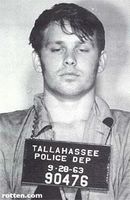"I do believe that the majority of people, people of Christian faith, are under attack. No question about it."
These words, uttered by the
Rev. Franklin Graham, are a sobering and powerful reminder that we can
never let down our guard against the evils of non-Christian forces. Beware of the heathen who speaks of tolerance and love and peace as he impurifies all we hold dear. Increasingly, my friends, we find ourselves deprived of the very things that make this season special:
Christmas trees and
Christmas carols and
Christmas lights and
Christmas TV specials and
Christmas sweaters and
Christmas cream gravy and so on and so on.
Just kidding.
In response to the
Red Dirt Blog symposium soliciting views on the current Christ-in-Christmas brouhaha, let me offer my humble views on the latest flailing from the aforementioned Graham Cracker and
Loofa O'Reilly and every other Chicken Little squawking about the alleged whitewashing of Christmas at the hands of nefarious anti-Christians.
Here ye, for I say to both the Religious Right and the Secular Left: A pox on both your houses!
As for the claims of open hostility on Christmas, I will concede that things do get mighty silly when, for instance, school officials in Mustang, Oklahoma, feel they must
scrap a nativity scene in a school play, while
retaining aspects of Hanukkah and Kwanzaa. Yes, that
is just crazy. Either the school should remove
all religious connotations whatsoever from the staged drama (at which point, you've gotta wonder what the point is of putting on the seasonal play) or you keep them all
in. Speaking personally as an agnostic Jew in Red State America (yeah, I know, McInerney doesn't
sound Jewish), I've got to say that I don't feel particularly threatened by the mere presentation of a nativity scene.
But I think that Mustang school administrators and similar cases around the country are primarily reacting to what they
perceive to be a lurking anti-Christian machine that will spring into action and mow down all those who dare flout church/state separation. The ACLU, Americans United for the Separation of Church and State and like-minded entities can and do target such things on occasion. Still, those groups are hardly the norm of secular America or the political left. And in fairness to those organizations, it
can be tricky business ensuring that everyone abide by that darn constitutional separation.
Yes, some anti-Christian bigotry obviously does exist -- but
everything exists. There are people who get their sexual jollies fantasizing about
Liza Minnelli while sucking on toes slathered in linseed oil. It's all a question of
magnitude.
And call me crazy, but I just don't sense a marked rise in hostility to Christianity. I tend to agree with
The Washington Monthly's
Kevin Drum who has this to say about the zeal with which some religious conservatives are whipping themselves into a frenzy: "Hell, why not just compare the plight of besieged, persecuted Christians in America to the Holocaust and be done with it?"
It's difficult for me to stifle a chuckle when a group out there is railing against use of the phrase
"Happy Holidays" or New York City Mayor Michael Bloomberg is roundly chastised for referring to a Christmas tree (a
pagan symbol, incidentally) as a "holiday tree" (by the way, the White House and Republican-controlled Congress have been calling it a "holiday tree" for
years now). Granted, these are nuanced P.C. expressions, but it seems fairly obvious that they do not stem from tenets of anti-Christian
exclusion. I don't think such exclusion is too likely, anyway, in a nation where some 85 percent of the population call themselves Christian.
No, I suspect that instead all you're seeing is a well-meaning, if clumsy, attempt to nurture
inclusion.
Now, such stabs at inclusion might be alternately heavy-handed and dumb, but
hateful bigotry? I don't think so, hoss.
I suspect, too, that much of this current outcry about "taking Christ out of Christmas" is ginned up by the Religious Right for the chief purpose of stretching that so-called cultural divide. Empowerment and righteousness do not arise from complacency. Those things come from having your back
against the wall. Those things come from being in the fight. Remember,
Charles Atlas had to have the shit kicked out of him on the beach before he transformed himself into the paragon of dynamic tension.
In other words,
you need an enemy. And so when times are good (i.e. Born-Again Christian in the White House, comfortable Republican majority in Congress, "
Passion of the Christ" third top-grossing film of the year, etc.) you exaggerate those pesky nuisances and turn them into formidable threats on your very belief system. Rally the faithful, and keep 'em rallied.
As for my opinion, dear readers (
Mom, take note), I feel kinda like the Woody Allen character in "
Annie Hall" watching his parents bicker over something ridiculous and finally sputtering, "You're
both crazy!" (for whatever reason, I'm unable to discuss anything these days without the inevitable reference to a movie scene).
But it fits in this case. The Religious Right and Secular Left are
both crazy -- at least in these so-called "Christmas wars."






















